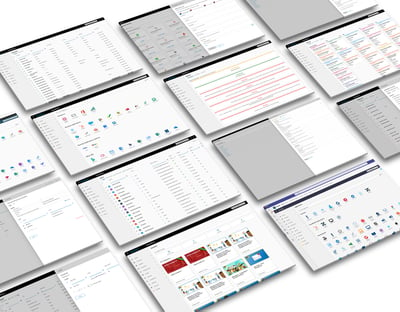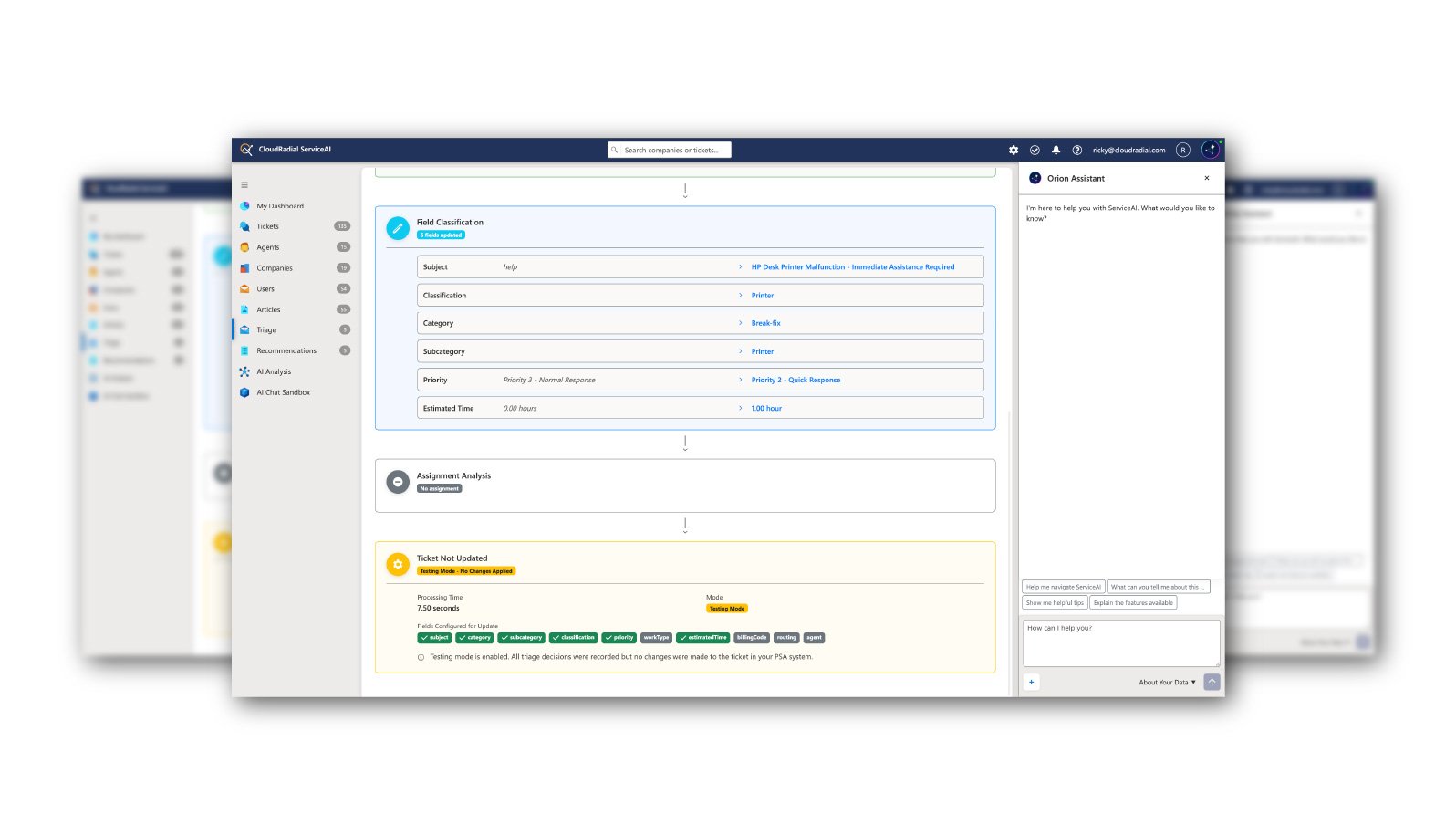How to Pilot AI at Your MSP Without Blowing Up Your Client Relationships
Here's the thing about AI pilots that nobody in the vendor world wants to acknowledge: MSPs don't get to experiment freely. You're not a SaaS startup...
Get everything you need for the ultimate client experience
Enterprise-grade infrastructure with the flexibility MSPs demand
Perfectly tailored AI that knows your specific MSP

Build your own Shopify-like store with your PSA products & distributors
Have clients to submit tickets directly to your PSA, freeing up your team's time
Pre-triage and route tickets correctly with the help of AI
Deliver instant, accurate answers that can help achieve zero-touch resolution
You'll learn things like how to add revenue without adding cost, MSP best practices, and how to master client management.

So, you're thinking of becoming an MSP?
That's great news; how about a CloudRadial customer, too? (Just kidding. You can book that demo anytime).
You're likely an IT Provider offering break-fix services, and you're feeling under pressure, undervalued, and a little burnt out.
Don't worry; your peers on Reddit say the same.
You're likely looking to move away from unpredictable revenue, unsociable working hours, and being the life support to businesses who wait for things to crash so you can bring them back to life.
We hear you. It's exhausting and it's not sustainable. And that beach vacation seems so close, yet so far.
But there's no need to hit that panic button yet. We have gathered some great insights and best practices to help you move away from break-fix and become a successful MSP.
And if you have questions at the end, reach out. We’d love to hear from you.
Tip One: Don't Skimp on Your RMM and PSA Tools
Investing in good quality Remote monitoring and management (RMM) and Professional Services Automation (PSA) tools should be at the top of your list.
And yes, you need both.
You'll want to invest in a PSA that helps you streamline operations, handles back-office tasks, provides automation, simplifies invoicing and helps you with resource management.
And, when looking for an RMM, you'll want to invest in a solution that consolidates client information into one single platform, provides comprehensive auditing, customizable reporting, monitoring and alerting, and offers integration capabilities.
Of course, there are so many more benefits to both solutions, but since you’ll be doing the research, you can look out for the features you need and invest accordingly.
But please, whatever you do, don't invest in the cheapest solutions. These tools are the backbone of your business and will help you scale without additional hires. So, you should invest wisely.
Tip Two: Put Pen to Paper and Write Your MSA
A Managed Services Agreement (MSA) ensures you and your clients are on the same page. It is a contract that outlines the scope of your services and responsibilities, defines billing and payment processes, and ensures that all legal matters are clearly defined and agreed upon.
If you want your clients to stay clients, this agreement is the foundation for building solid relationships based on respect, trust, and transparency. You should take it seriously and work with a professional lawyer if needed.

Tip Three: Define Your Services...
Think back to your break-fix days (hopefully, it's not too traumatic). What problems were you solving regularly?
Take the time to invest in solutions you know will add value to your clients and your business. Whether it's cloud services, endpoint and network security, client services, automation tools, etc., you need to be able to sell your value to your clients and price accordingly.
...and Add a Price Tag
Don't sweat it. There is an overwhelming amount of 'advice' on what you should and shouldn't do when it comes to pricing, but we have taken the information and narrowed it down to four key models:
You can use these to get started and visit ManageEngine for more useful pricing tips.
Tip Four: Refine and Rehearse Your Sales Pitch
No matter how much you master this, you will get rejections. And it's better to let that sink in now.
Now that you have, let's discuss the pitch.
Keep it short. Keep it simple. Don’t do all the talking with potential clients; listen more than speak.
Clearly communicate the value of your services. Why would they want to work with you?
Talk to your customer's pain points. How can you solve them?
Weave in a compelling story that will pull on the heartstrings. Tell them about that time you worked in break-fix and what you’ve learned since then.
End the pitch with a clear call to action. Whether you encourage them to purchase, book a trial, or meet for a coffee, just ensure you book something.
Delivering the same pitch will get boring, so don't be afraid to mix it up. You will find things that work and things that don't, but as long as you keep your message clear, you'll be on the right track.
Tip Five: Reach Out to Your Existing Clients

Yes, we are talking about your break-fix clients. When winning new business, they will be the easiest and often the quickest to convert. They know you, trust you, and you can consider offering a ‘friends and family’ discount for a short period.
Also, people who enjoy working with you will likely refer their peers to your business, so get those clients onboarded quickly and watch as they grow.
Tip Six: Build a Brand
We saved this until last because we know the word marketing might trigger a stress response.
Don't let it.
It's a quick point to suggest that you invest in website and logo creation so you can start to build a brand you are proud of.
We know that marketing will not be at the top of your list, and it shouldn't be, but there are ways you can keep costs low and still produce high-quality assets. Websites like Canva are great for logos, Squarespace is great for websites, and of course, there are dedicated agencies that offer marketing services.
With 75% of SMBs now outsourcing their IT to MSPs, there’s never been a better time to start your journey.
Of course, there will be roadblocks and challenges along the way, but we assure you it will all be worth it in the long run.
And when you're ready to invest in the only Unified Client Portal dedicated to helping MSPs succeed, CloudRadial has got you covered. We can't wait to help you grow and scale your MSP.

Here's the thing about AI pilots that nobody in the vendor world wants to acknowledge: MSPs don't get to experiment freely. You're not a SaaS startup...

Let's get something out of the way early: when most MSP owners hear "AI for your service desk," they picture a chatbot. Some widget sitting on a...

CloudRadial ServiceAI is purpose-built AI for MSPs, trained on your tickets, your clients, and your solutions. Get accurate support suggestions,...